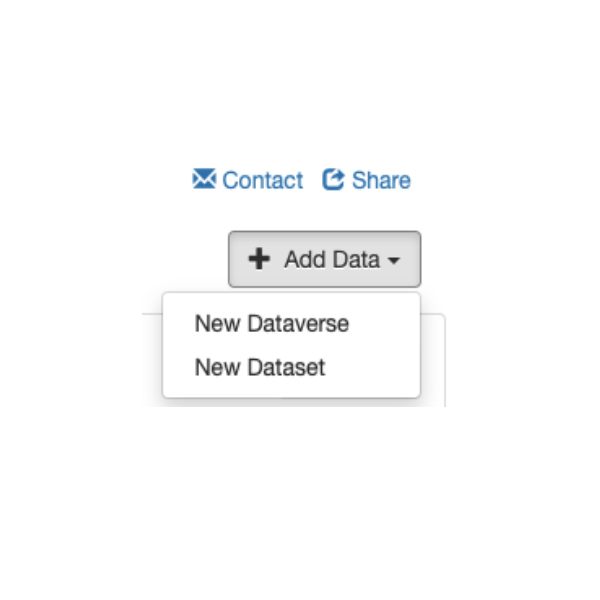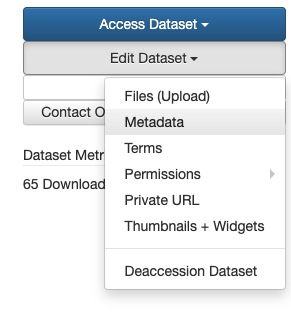Before depositing your data, make sure your dataset follows these best practices.
Sensitive data
In accordance with the Borealis terms of use, ensure that:
- Data are anonymized and sensitive or personally identifiable information is removed.
- If the dataset includes secondary data, you have the proper permissions to share the dataset.
File naming conventions
Following file naming best practices increases the discoverability of your dataset. Ensure that your dataset meets the following standards:
- Consistent file naming structure.
- Descriptive but short file names (fewer than 25 characters)
- No spaces between words: use underscores and capital letters instead (e.g., File_Name_20210701).
- Present dates in this format: YYYYMMDD
- No special characters, such as - @ # $ % & * () +? > <
Preferred file formats
Dataverse accepts a wide range of formats. For long-term access and preservation, ensure that your data is in a preferred file format (such as those below). Also, make sure that all your files contain a valid extension (e.g., .txt, .pdf).
The following is a non-exhaustive list of preferred file formats for depositing in uOttawa Dataverse. If you have questions about preferred file formats, email repository staff.
| File Type | Preferred File Formats (examples) |
|---|---|
Audio |
|
Image |
|
Text |
|
Markup language |
|
Transcription |
|
Video |
|
Statistical analysis |
|
Metadata
Using rich metadata to describe your dataset helps support its discovery, reuse and preservation. Complete all required metadata fields and subject-specific metadata fields, as appropriate. For guidance, see the Dataverse North Metadata Best Practices Guide.
Supplemental documentation
Supplemental documentation such as ReadMe files or codebooks enable your research data to be interpreted correctly. All deposited datasets must include a ReadMe or a codebook. The supplemental documentation should provide details on the files and their content including:
The relationship between files
- Directory listing and file names, including content descriptions
- File formats
- File version information
- Explanation of any codes, acronyms and abbreviations used
- Procedures for data collection, analysis and processing
- Information about dataset completeness
- Limitations on reuse
ReadMe files must:
Be saved as Unicode UTF-8 plain text files (.txt) or in PDF/A format (.pdf).
Use forced numbering in the file name (e.g. 00_ReadMe.txt) to make it appear at the top of the file overview in Dataverse.
For a basic template, see the Cornell University ReadMe template.




